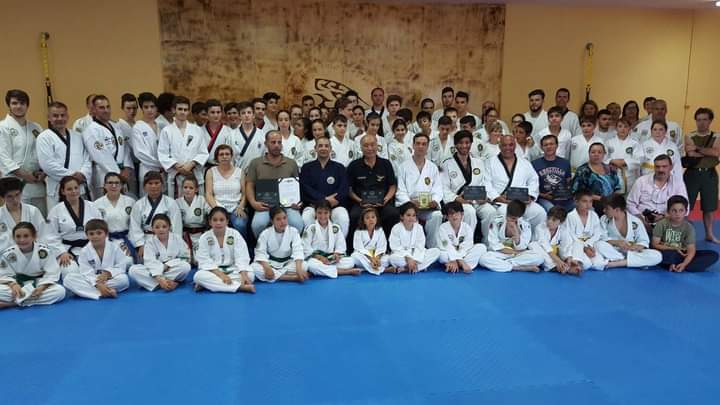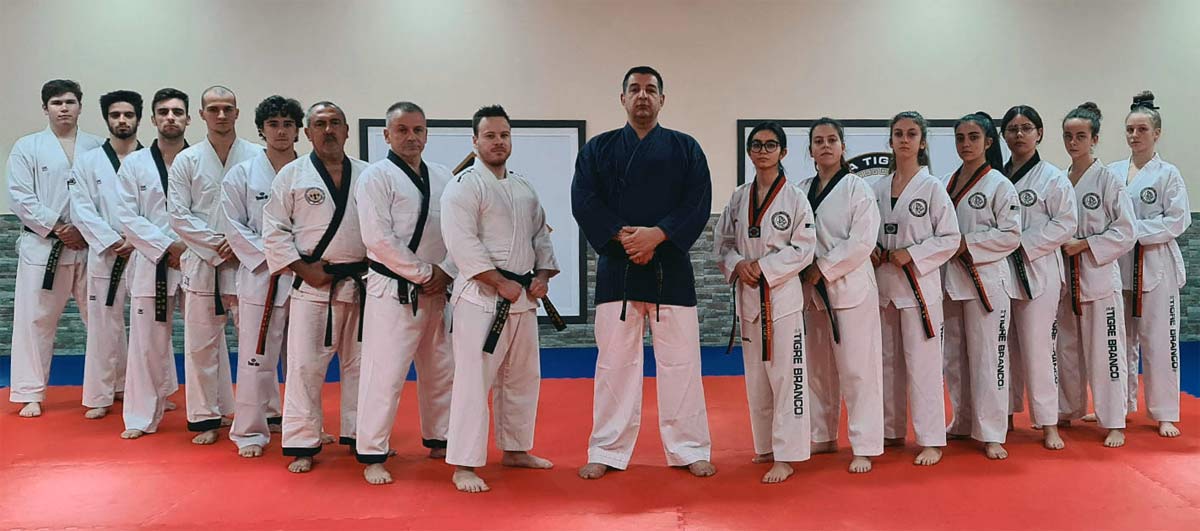Kangdukwon in Latin America (and Portugal)
In 1976, Kangdukwon taekwondo in the person of Grand Master Chang Hak Kim arrived to Paraguay. Chang Hak Kim introduced both Kangdukwon Taekwondo and Hapkido to the Hispanic population of South America from Paraguay and Chile to Brazil. From there his name and reputation spread further to Portugal and throughout the Hispanic-speaking world of Hapkido and Taekwondo alike.
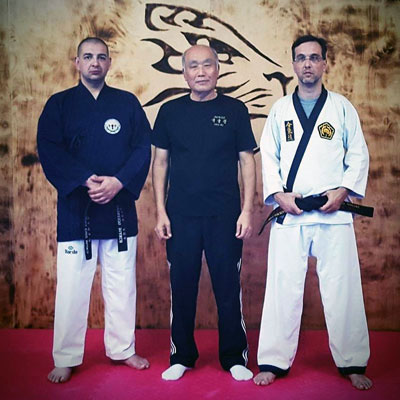

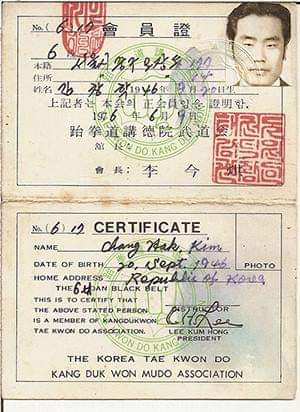
by Fernando Branco
Chang Hak Kim started taekwondo training at a young age under Grand Master Kim Moon Kyu such that he reached 1st dan in Taekwondo when he was only fourteen. In 1966, already a second dan, he began teaching at a dojang located in Ulchiro-5-GA, in the center of the Korean capital.
In 1976 he emigrated from Korea to settle for two years in Paraguay, where he soon became vice president of the Paraguayan Taekwondo Association. Two years later, he emigrated to Chile, where he became president of the Chilean Taekwondo Association.
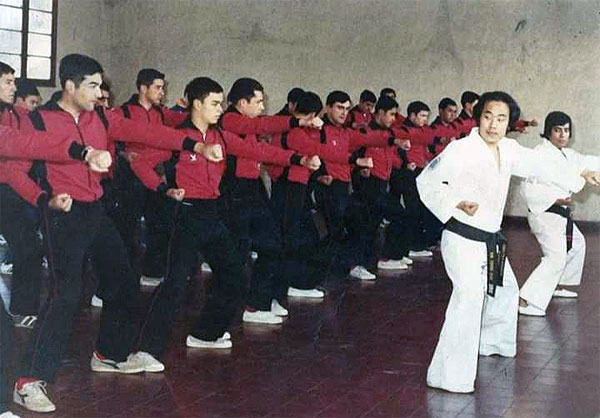
In 1981 Chang Hak Kim arrived to Brazil and created the Brazil Eagle Club, where Taekwondo Kang Duk Won and Hapkido Kuk Sool Kwan alike were practiced. Today Grand Master Chang Hak Kim is currently living in retirement in Brazil where he continues to provide technical support to all of his Hapkido and Taekwondo students.
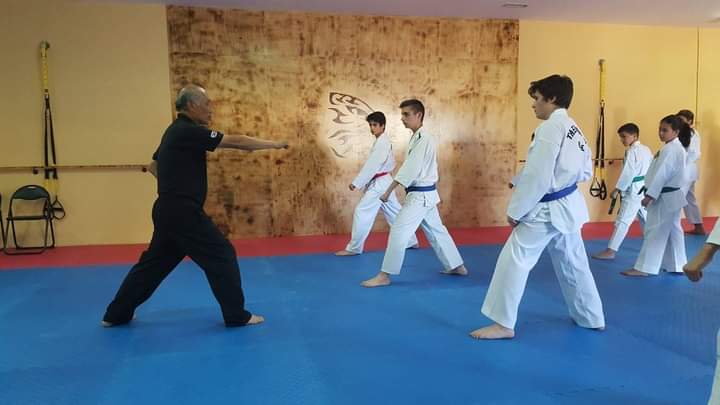
Due to the many political games and bad decisions of the institutions that manage Taekwondo in Portugal, which only gave importance to the commercial part of it, I as a teacher felt the need to look for something more. I wanted as a teacher someone who could give us the full spectrum of knowledge in terms of this wonderful martial art’s history, culture and traditions.
That was when I contacted Master Marcelo Ruhland, seeking the support of Grand Master Chang Hak Kim. After several contacts, Grand Master Chang sent Master Marcelo to Portugal to gather information regarding our school and myself. He asked for all my exams program and technical videos about my Taekwondo and Hapkido. The following year GM Chang made his first visit to our dojang in Portugal. That was when I came to realize what a wonderful person he is.
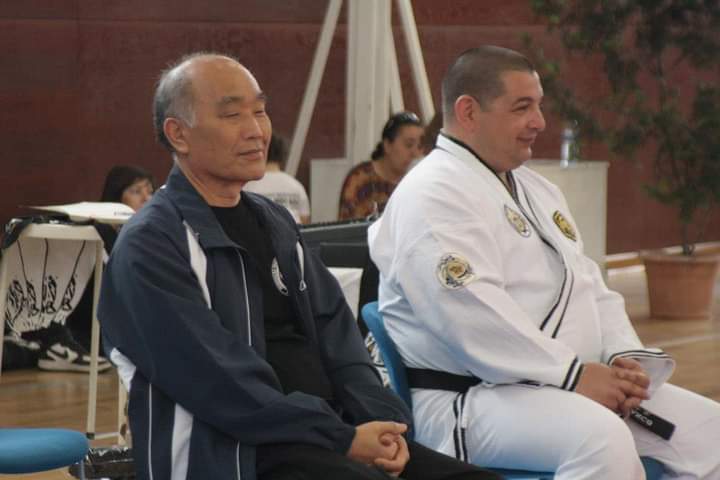
In the wonderful breakout sessions between training sessions where we talked about Taekwondo, its philosophy, culture, etc. I realized that Grand Master Chang is a very reserved person of few words who enjoys training inside a dojang much more than talking. At times when we did talk, he always avoided discussing the problems associated with Taekwondo. He felt discouraged with the course that Taekwondo had taken. He liked that Taekwondo was always practiced in an absolute way, not thinking only from a sport angle. I also sensed that GM Chang felt a little sad in his words, as if he had been forgotten by his country and for all that he had already done for Taekwondo and Hapkido.
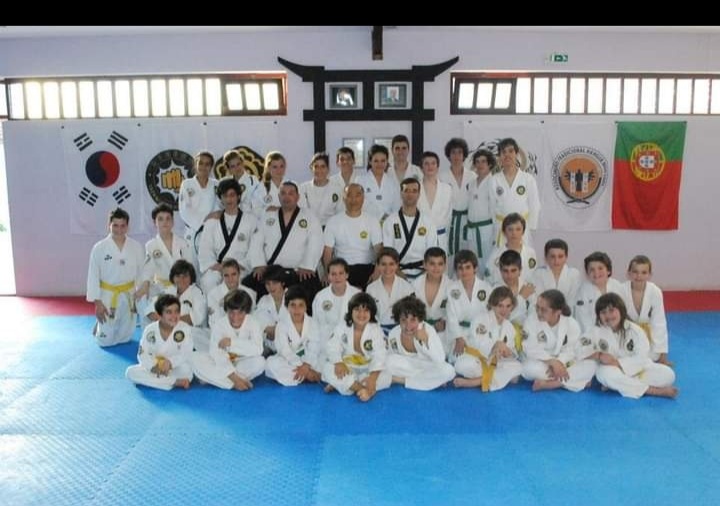
Grand Master Chang always taught us that Taekwondo should be used as in the Korean Hongik Ingan philosophy. Taekwondo through its principles and training would serve mainly as a tool for human beings to help other people. Perhaps this is why he turned more to Hapkido since he had lost many students who only wanted the sportive aspect of Taekwondo. Unfortunately, in 2011 GM Chang suffered a stroke and is somewhat limited, but he continues to give classes with the same smile and joy as ever.
What determines the greatness of one’s grand master? It can be said that great men are those who accomplish great things, but also those who manage to make the world a little better thanks to their existence, by teaching children or by dedicating his precious hours to his disciples. A great man is the one who makes a difference in the lives of others around him. He is one who knows how to sow delicate flowers of attention and humility in the garden of affections. So all my words of gratitude are insufficient to express my gratitude to GM Chang Hak Kim for teaching us and continuing to believe in us!
Fernando Branco 올림
| ACADEMIA TIGRE BRANCO Artes Marciais Coreanas Tel: +351 224228057 | M: +351 935507035 E: academia@tigrebranco.pt | www.atbranco.com Tv. Lameira Ferreira nº100 | 4440-750 Valongo | Portugal | |||
